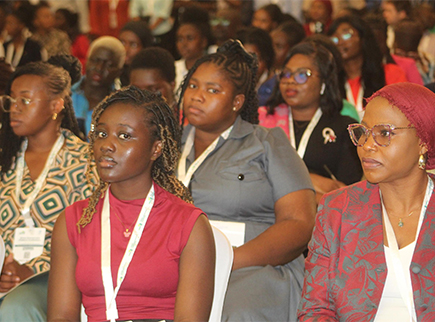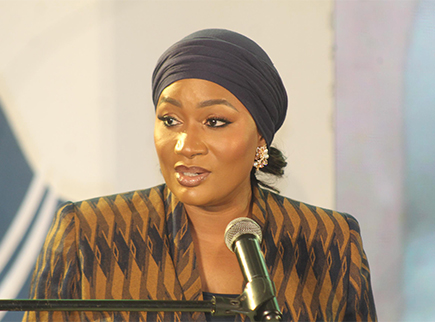Mrs Samira Bawumia, wife of former Vice President Dr Mahamudu Bawumia, has urged African leaders to make young Africans, especially women and children, the driving force of innovation and impact in the fight against climate change.
She said women and children were no longer peripheral voices in climate action, and called on governments, civil society, international partners, the private sector, academia, and young people to renew their commitment to translating dialogue into partnership and investing in Africa-led solutions.
Mrs Bawumia made the call on Monday at the opening of the 2025 Africa Women and Children Conference (AFRIWOCC) in Accra, on the theme: “Young Voices, Innovative Ideas, Greater Impact for Africa.”
She said the theme was not merely aspirational but imperative.
“Young Voices means we must continue expanding youth-centred platforms that ensure full participation and advocacy – not just for leaders of tomorrow, but leaders of today,” she said.
Mrs Bawumia urged investment in scalable, locally driven solutions rooted in indigenous knowledge and youth creativity.
“As a continent, we can learn from one another. We must connect these voices and ideas to policy, financing and implementation to drive transformation across Africa,” she added.

Madam Myriam Montrat, Canadian High Commissioner to Ghana, said access to quality education was a cornerstone of sustainable development and a fundamental human right, yet millions of children and youth remained out of school, while many who were enrolled were not learning effectively.
She said Canada viewed education as a driver of peace, security and economic growth, and was committed to promoting safe, inclusive, and gender-responsive systems, especially for the most vulnerable populations.
Since 1957, Canada had partnered with Ghana to support technical and vocational education and training (TVET) to address youth unemployment and ensure that training matched industry needs.
Madam Montrat said Canada’s contribution to the TVET sector currently stood at 30 million Canadian dollars, supporting gender-sensitive, competency-based, and market-relevant skills training for young women and men.
She said Canada remained open to engaging with the Ministries of Education, Youth, and Gender to identify new opportunities to support young women in non-traditional job sectors.
On climate change, the High Commissioner said between 2022 and 2024, extreme weather events disrupted the education of some 400 million children globally, forcing school closures in 81 countries.
Students in low-income countries, she said, lost an average of 18 school days annually due to climate impacts compared to 2.4 days in wealthier nations.
Madam Montrat noted that teachers were essential in preparing students for climate challenges, yet only 30 per cent felt confident teaching climate-related topics.
She, therefore, called for the integration of climate education into national curricula to equip students with the knowledge and skills for sustainable solutions.
Dr Angela Dwamena-Aboagye, Executive Director of The Ark Foundation Ghana, encouraged young people to engage more in advocacy to influence change.
“So that in a few years, you can look back and say, ‘That changed because of me, that changed because of our network,” she said.
Dr Dwamena- Aboagy stressed the need for intentional inclusion of women, especially the young ones.
“It’s not about competition; it’s about inclusion. Women and men together make the difference,” she said.

